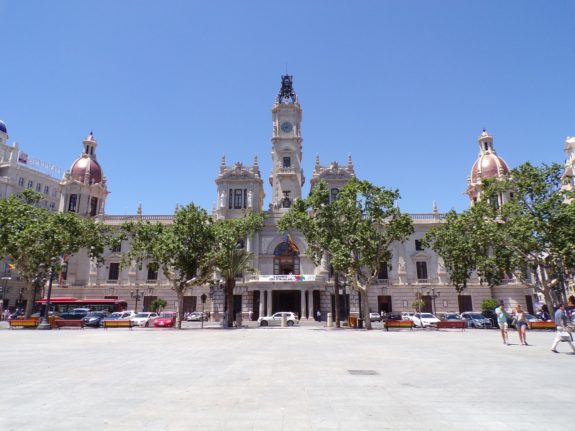Once you have been granted your visa or residence in Spain, there will be yet more documents you’ll need to apply for once you’ve arrived. These may be foreign ID cards or residency certificates. Likewise, when your visa or temporary residence card expires you’ll need to pay for extensions or renewals.
The Spanish authorities require you to pay a small fee each time you do one of these residency processes or submit your application. Each one ranges in price from just over €3 for some to €80 for others.
Foreign identity cards and residency authorisations:
The TIE stands for tarjeta de identidad de extranjero and is an ID card for non-EU foreigners who live in Spain. There are various reasons you can be granted a TIE and some of them have different processing fees. For EU citizens, they will need to apply for an EU green residency certificate instead, which again has a different cost.
TIE: For temporary residents or cross-border workers who stay in Spain for a period of more than six months – €16.08.
TIE: To renew your temporary residence authorisation or extension for cross-border workers in Spain for a period of more than six months – €16.08.
TIE: For long-term residence authorisation or long-term EU residence. Your initial TIE will be issued for a period of five years, after which you can apply for a long-term TIE card and renew it for another five. – €21.87.
Green EU residency certificate: For EU residents who move to Spain or for a family member of an EU citizen. This card must be applied for within three months of moving to Spain. – €12.
READ ALSO: Do you always have to carry ID with you in Spain?
Visa extensions:
Extension of short-term stay without visa: For those who need to extend their stay in Spain, but don’t have a visa. The cost is €17.49, but this base amount will increase by €1.06 for each day the stay is extended.
Extension of short-term stay with visa: For those who have a short-term visa to stay in Spain and need to extend it due to one of the reasons under article 34 of the Regulation of Organic Law 4/2000 – €31.22.
Temporary residency authorisations for exceptional circumstances:
Temporary residence authorisation for exceptional circumstances: Due to international protection, humanitarian reasons, collaboration with authorities, national security or public interest according to the Regulations of the Law Organic 4/2000 – €38.28.
Processing of residence and work authorisations for exceptional circumstances: For victims of gender violence and human trafficking according to articles 132 and 144 of the Regulations of Organic Law 4/2000 – €10.94.
Transit visas or border processing fees:
Processing of applications for authorisation or transit visa at the border: For citizens of countries who need a transit visa for a stop over at a Spanish airport. Application for these visas must be submitted in person no more than 90 days in advance of your trip and at least 15 days before. – €80
Processing of applications for authorisation or transit visa at the border for minors: The same as above, except for children over 6 and under 12 years of age – €40
Processing of visa applications at the border: For those who need their visas processed upon arrival at the Spanish border – €80
Processing of the applications for a visa at the border for minors: The same as above but for children over 6 and under 12 years of age – €40
Processing of applications for a visa at the border for a national of a country with which the EU has signed a Visa Flexibility Agreement. These include Albania, Armenia, Azerbaijan, Bosnia and Herzegovina, Cape Verde, Republic of Macedonia, Georgia, Moldova, Montenegro, Serbia and Ukraine – €35
Other documents you may need:
Return authorisations: For when you need to travel out of Spain and then return while your ID cards or residency documents are being issued or renewed – €10.72
Assignment of Foreign Identity Number (NIE): For when you need a foreign identity number. You will need this number for everything from buying a property or a car to paying your taxes. Residents and non-residents can be issued with this number. – €9.84
Authorisation to issue a letter of invitation or Carta de invitación: For when a non-EU citizen, either friend or family member comes to stay with you in Spain – €75.05
Letter of invitation: Getting the letter of invitation itself requires a further fee of €6.54
Certification for documents related to the letter of invitation: If you need any documentation certified along with your application for a letter of invitation it will cost you an additional €1.09 for each document.



 Please whitelist us to continue reading.
Please whitelist us to continue reading.
Member comments